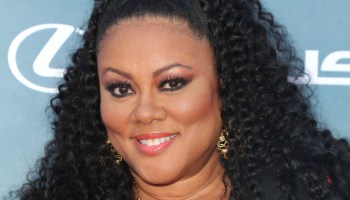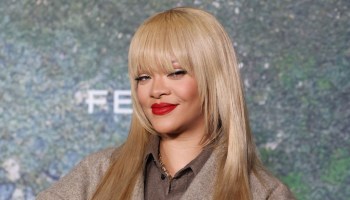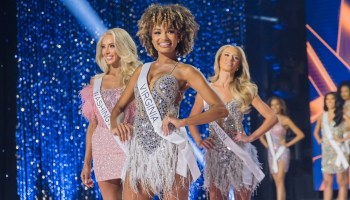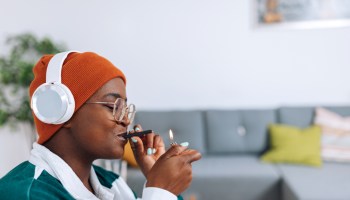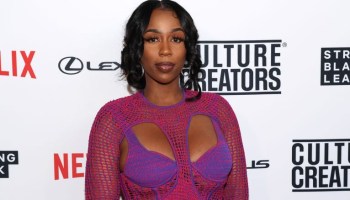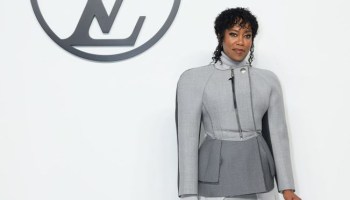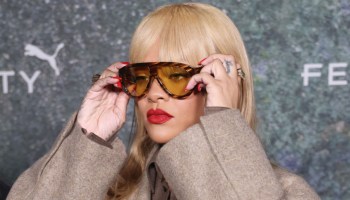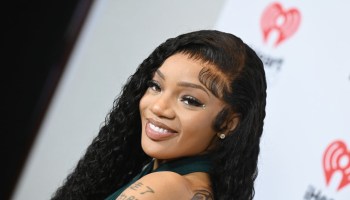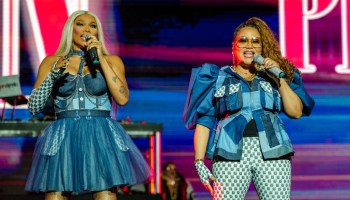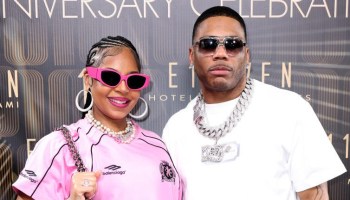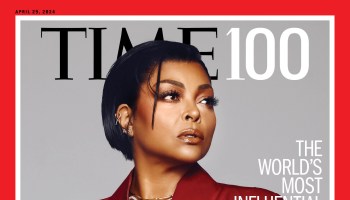
Source: Cultura RM/Laura Doss / Getty
It always feels like we’re making strides as a community and culture, until a study comes out telling us, but wait, there’s more. Not that all the data should be taken at face value, but it’s important to be aware of the messages being put out there.
Take, for example, this recent study that says “three states in the U.S. didn’t have any girls or African Americans take AP computer science exams, despite the fact that the number of students taking the AP computer exam increased 24 percent from last year.”
While it may seem like a small thing in the scheme of the horrific violence and injustices going on in our daily lives, these statistics and studies are essentially saying that our kids are not advancing in education, which means less opportunities for them as they become adults.
The facts are that, as reported by U.S. News & World Report, by 2020, there will be some 10 million STEM (science, technology, engineering and math) job openings. Even if the kids— or you –don’t want to pursue a career in these areas, you’ll likely need to stay ahead of the STEM curve in your own industry. By starting early, students will have a foundation for success in any 21st-century career path. Every student should have the opportunity to learn computer science. It helps nurture problem-solving skills, logic and creativity.
Or there’s this study which says that not only are poor boys generally worse students than poor girls, it points out that Black boys (in Florida for this specific study) are 8.4 percentage points less likely than Black girls to be kindergarten-ready because boys are more sensitive to family disadvantages.
That’s a lot to take in as an adult sitting here writing this, but imagine how the kids feel. These studies don’t have to be our stories. Every day, in some way, someone is out there trying to change these stats, we just have to find them. And when we do find them, we have to share the knowledge.
That’s exactly the mission of an organization called Black Girls CODE, a not-for-profit organization that focuses on providing technology education to African-American girls ages 7–17. Kimberly Bryant, an electrical engineer working in biotech for over 20 years, founded Black Girls CODE in 2011 in hopes of rectifying the underrepresented female and African demographic within the technology industry. Offering programs such as computer programming, coding, as well as website/robot/mobile application-building courses, she hopes to provide African-American youth with the skills to occupy some of the 1.4 million computing job openings expected to be available in the U.S. in 2020.
At a recent Black Girls CODE workshop in New York City, Ronique Richburg, took the time to speak to the parents of students who signed up for that days’ Robotics lessons. Her daughter, Brianna, discovered Black Girls CODE when she was just over 17, but connecting with the organization changed the path of her life.
“When Brianna was applying to college, we wanted her application to stand out and figured the best way to do that was to add some extracurricular activities,” explains Richburg. “We discovered Black Girls CODE … attended their end of the year mixer and met the NY team leads. Brianna was 17-and-a-half and would be aged out of eligibility for the program and so the team leads suggested that she apply as a volunteer.”
Brianna, who had always had her sights set on medical school, participated in the “Build A Website In A Day” workshop as a non-tech volunteer and but also sat in on the workshop to see what the girls were doing. She literally described their projects as “coming to life.”
“From that experience, she decided to give coding a try,” Richburg shares about her daughter’s experience. “She came home after that workshop and began looking up tutorials about coding. Then we found a program with Google and she figured what better way to learn to code than to learn from Google software engineers.”
“That experience unlocked a passion that I had no idea existed,” Brianna shared with Diversity in Action.
From there, Brianna applied for the competitive program and was one of 30 students selected to attend a three-week immersion program in Mountain View, California.
“Black Girls CODE has changed Brianna’s path,” says Richburg. “Parenthetically, they have a hashtag campaign, #changeherpath. Because of BGC, Brianna has decided to study computer science at Spelman College. Because of BGC, Brianna has participated in immersion programs at Google and Square Inc. Because of BGC, Brianna has interned for U.S. Chief Technology Officer Megan Smith in the White House Office of Science and Technology Policy. Because of BGC, Brianna has won STEM scholarships that have helped pay for her college tuition. Because of BGC, Brianna has stepped out of her comfort zone and into a confidence journey.”
Black Girls CODE founder, Kimberly Bryant, began BGC after her daughter was the only female and girl of color in summer gaming camps and needed a space where she could feel comfortable learning to program. Bryant continues to realize the vision that led her to start BGC and selflessly helps young girls of color unlock their dreams.
In case you’re wondering, Black Boys CODE is coming soon.
The statistics we don’t hear much as we should, go like this: “more girls have tried computer science recently than in the last 70 years,” according to Hour of Code, a global movement by Computer Science Education Week and Code.org that begins with a one-hour introduction (that anyone can do and it’s free) to computer science, designed to demystify code and show that anybody can learn the basics.
Interested in learning more? Free sites like khanacademy.com and codeschool.org and the low-cost udemy.com are assets to students of all ages.
DON’T MISS:
NY Times Goes Viral For Pointing Out The Obvious: The Working Mom Struggle Is Real
‘Black-ish’ Star Yara Shahidi’s Slays Teen Vogue Natural Hair Spread
Michelle Obama’s Op-Ed On Girls’ Education Just Inspired Me To Do Better








